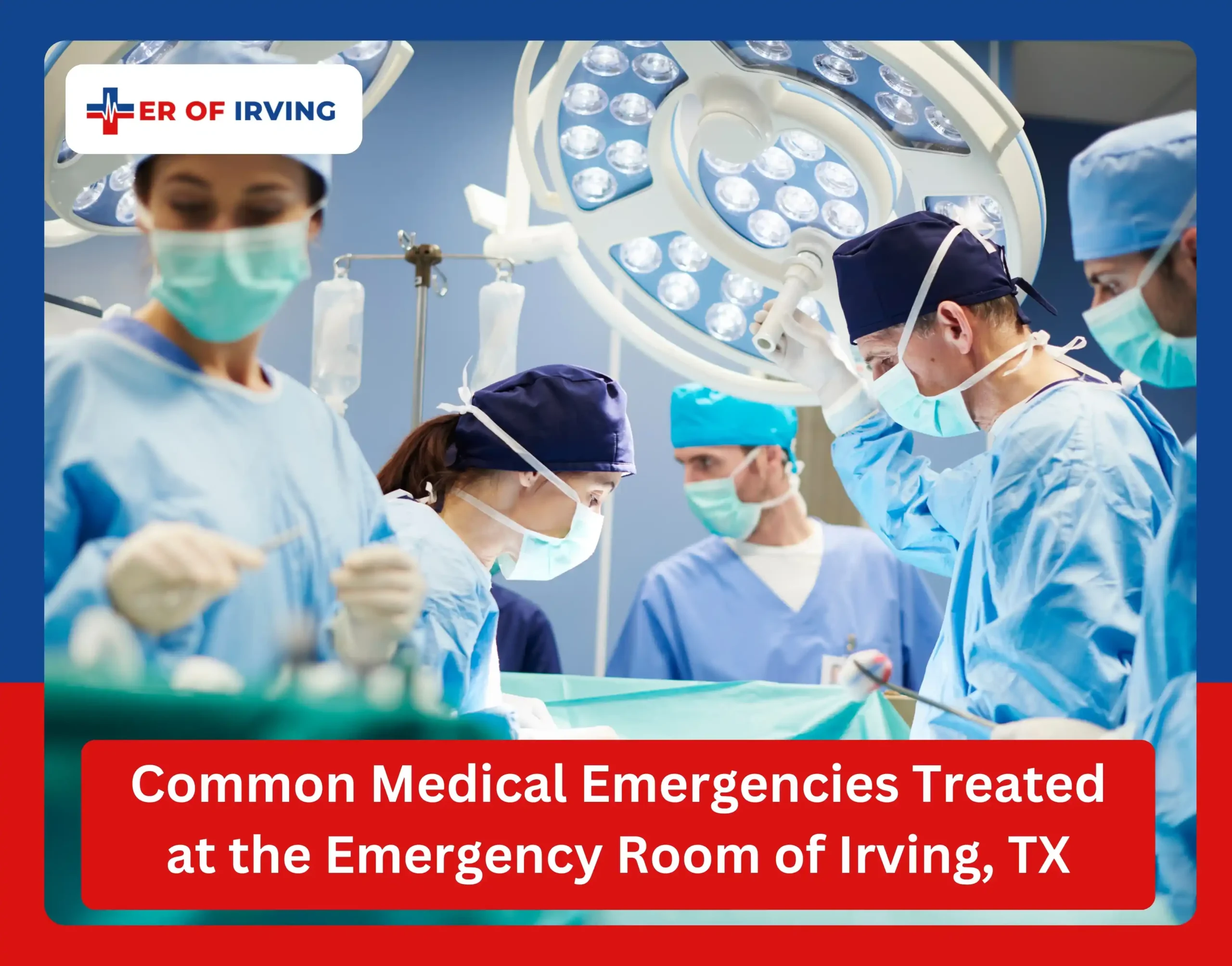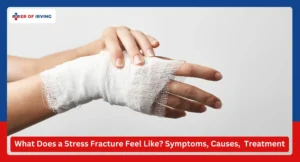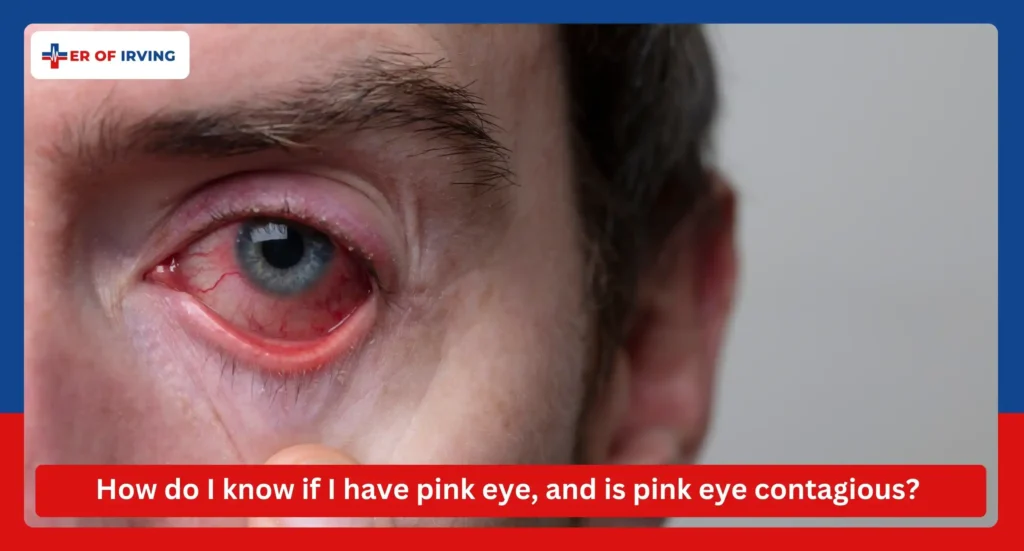Medical emergencies can strike at any time, requiring immediate and professional care. The emergency room of Irving, TX, is equipped to handle a variety of life-threatening conditions. Whether it’s a heart attack, stroke, severe injury, or another critical health issue, timely intervention at a critical care hospital can make all the difference. In this blog, we will explore some of the most common medical emergencies at the emergency room of Irving, TX, along with the symptoms, treatments, and importance of seeking urgent care.
Heart Attack: A Life-Threatening Emergency
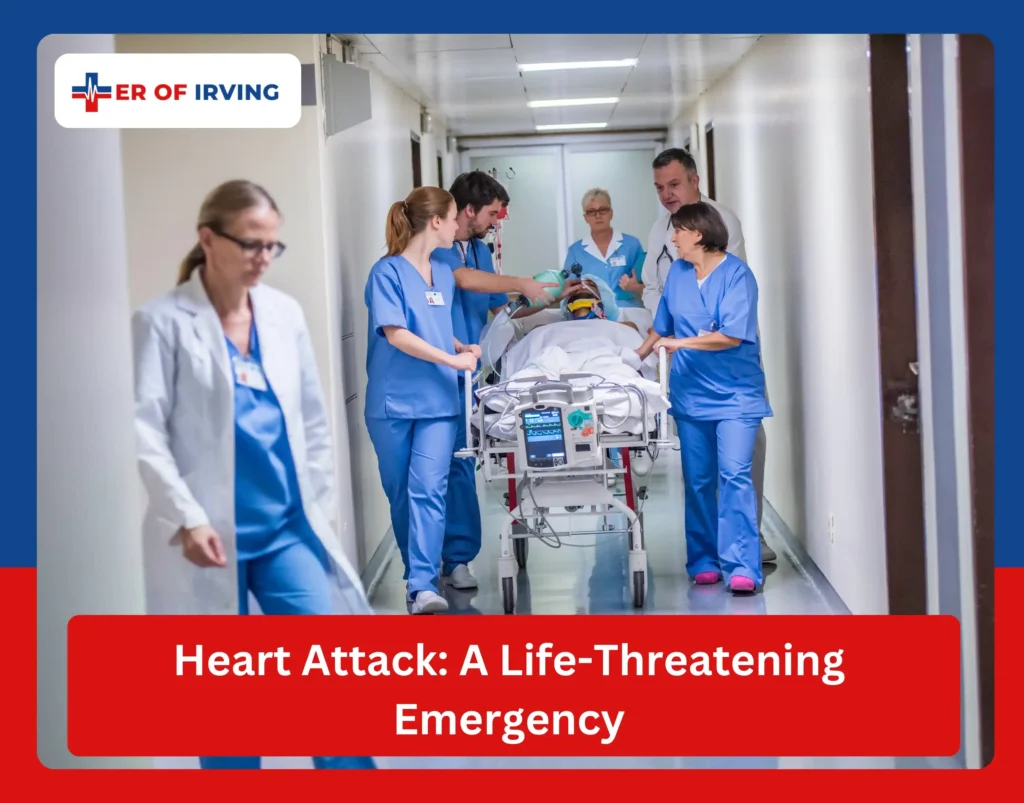
A heart attack, or myocardial infarction, occurs when blood flow to the heart is blocked. If not treated promptly, it can lead to severe complications or even death.
Common Heart Attack Symptoms:
- Chest pain or tightness
- Shortness of breath
- Pain radiating to the arm, neck, or jaw
- Cold sweats and nausea
Emergency Treatment:
When someone experiences heart attack symptoms, immediate care at an emergency room in Irving, TX is critical. Doctors may administer clot-busting drugs, perform angioplasty, or place a stent to restore blood flow. The faster the treatment, the better the chances of survival and recovery.
Stroke: Rapid Response is Key
A stroke occurs when the blood supply to the brain is interrupted, leading to potential brain damage. Rapid medical intervention can significantly improve outcomes.
Signs of Stroke:
- Sudden numbness or weakness in the face, arm, or leg
- Slurred speech or difficulty understanding
- Loss of balance or coordination
- Severe headache with no known cause
Stroke Treatment:
Emergency rooms in Irving, TX, prioritize stroke treatment using the FAST method (Face drooping, Arm weakness, Speech difficulty, Time to call 911). Immediate treatment may include clot-dissolving medications, surgery, or other interventions to prevent permanent brain damage.
Severe Injuries and Trauma
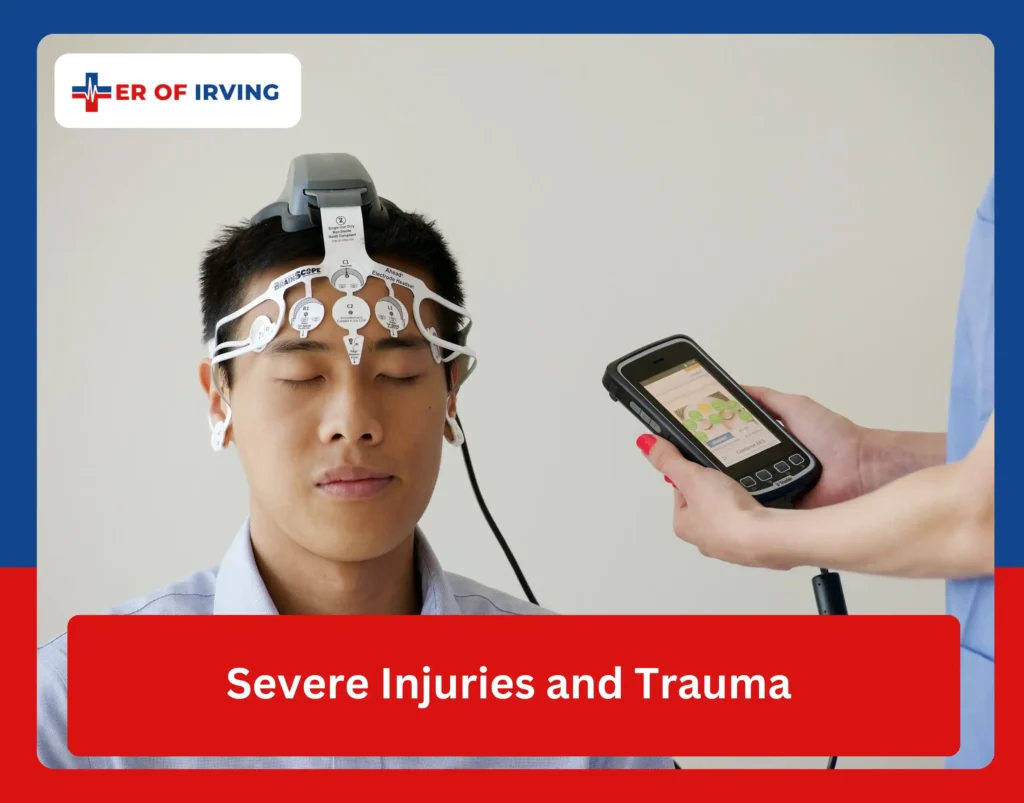
Accidents, falls, and sports injuries are common reasons people seek emergency care. Severe injuries may include fractures, head trauma, and internal bleeding.
Types of Severe Injuries Treated:
- Bone fractures and dislocations
- Deep cuts requiring stitches
- Concussions and traumatic brain injuries
- Spinal cord injuries
Emergency Room Care for Severe Injuries:
Doctors at critical care hospitals in Irving, TX assess injuries using imaging tests and provide necessary treatments, including surgery, casting, or wound suturing. Immediate attention prevents complications and speeds up recovery.
Respiratory Distress and Breathing Problems
Difficulty breathing can be caused by conditions like asthma attacks, pneumonia, or severe allergic reactions (anaphylaxis). These require urgent medical intervention.
Common Symptoms of Respiratory Emergencies:
- Wheezing and shortness of breath
- Bluish skin or lips
- Rapid or shallow breathing
- Confusion or dizziness
Emergency Treatment:
Doctors may provide oxygen therapy, bronchodilators, or advanced airway management to restore normal breathing. Patients with severe cases may require intensive care.
Abdominal Pain and Digestive Emergencies
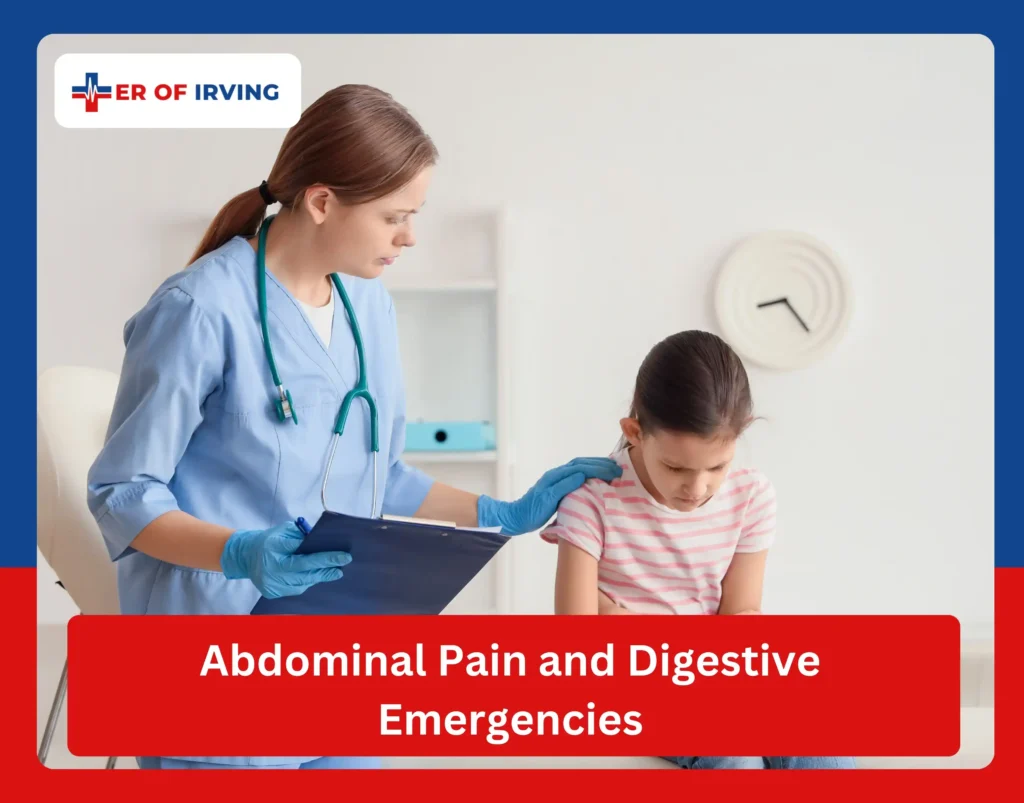
While minor stomach pain is common, severe abdominal pain could indicate appendicitis, gallbladder issues, or intestinal blockages requiring emergency care.
Symptoms to Watch For:
- Sharp or persistent stomach pain
- Vomiting blood
- Severe bloating or swelling
- High fever with abdominal discomfort
Treatment Approach:
Emergency rooms perform diagnostic tests, including ultrasounds and CT scans, to identify the cause. Treatment of abdominal pain may include pain relief, IV fluids, or emergency surgery.
Seizures and Neurological Emergencies
Seizures can result from epilepsy, brain injuries, or infections. They require prompt medical evaluation to determine the cause and prevent complications.
Warning Signs of a Seizure:
- Sudden loss of consciousness
- Uncontrolled jerking movements
- Confusion or disorientation
- Unusual behavior before or after the seizure
Emergency Care for Seizures:
Doctors stabilize the patient, monitor brain activity, and administer medications if needed. If a seizure lasts longer than five minutes, immediate medical attention is crucial.
Allergic Reactions and Anaphylaxis

Severe allergic reactions can cause anaphylaxis, a life-threatening condition that requires immediate intervention.
Symptoms of Anaphylaxis:
- Swelling of the face and throat
- Difficulty breathing
- Hives or skin rash
- Drop in blood pressure
Emergency Treatment:
Emergency rooms in Irving, TX, administer epinephrine, oxygen, and IV fluids to stabilize the patient and prevent fatal outcomes.
Conclusion
Medical emergencies can happen without warning, making access to a critical care hospital in Irving, TX essential for timely treatment. Whether it’s a heart attack, stroke, severe injury, or respiratory distress, seeking immediate care at the emergency room can save lives. Understanding the symptoms and knowing when to seek help can make all the difference in emergencies.
FAQ
What are the common heart attack symptoms that require emergency care?
Heart attack symptoms often include chest pain, shortness of breath, nausea, cold sweats, and pain radiating to the arm or jaw. If you or a loved one experience these signs, seek immediate medical attention at an emergency room in Irving, TX to prevent life-threatening complications.
How is stroke treatment handled in a critical care hospital?
Stroke treatment is time-sensitive and typically involves clot-busting medications or surgical procedures. A critical care hospital in Irving, TX, equipped with advanced neurological care, can quickly diagnose and treat strokes to minimize brain damage and improve recovery outcomes.
What types of severe injuries require emergency room treatment?
Severe injuries such as fractures, deep wounds, burns, and head trauma demand immediate ER attention. The emergency room in Irving, TX, provides advanced trauma care, ensuring rapid diagnosis, pain management, and surgical intervention if needed.
When should I visit a critical care hospital instead of an urgent care clinic?
Urgent care centers handle minor illnesses and injuries, but life-threatening conditions like heart attacks, strokes, and severe injuries require the expert care of a critical care hospital in Irving, TX. If symptoms are severe, always opt for the emergency room for immediate and specialized treatment.
How can emergency rooms in Irving, TX, ensure rapid critical care for life-threatening conditions?
Emergency rooms in Irving, TX, are staffed with board-certified physicians, trauma specialists, and advanced medical technology to handle critical conditions like heart attacks, strokes, and severe injuries. Their 24/7 availability ensures patients receive immediate, life-saving care without delay.

